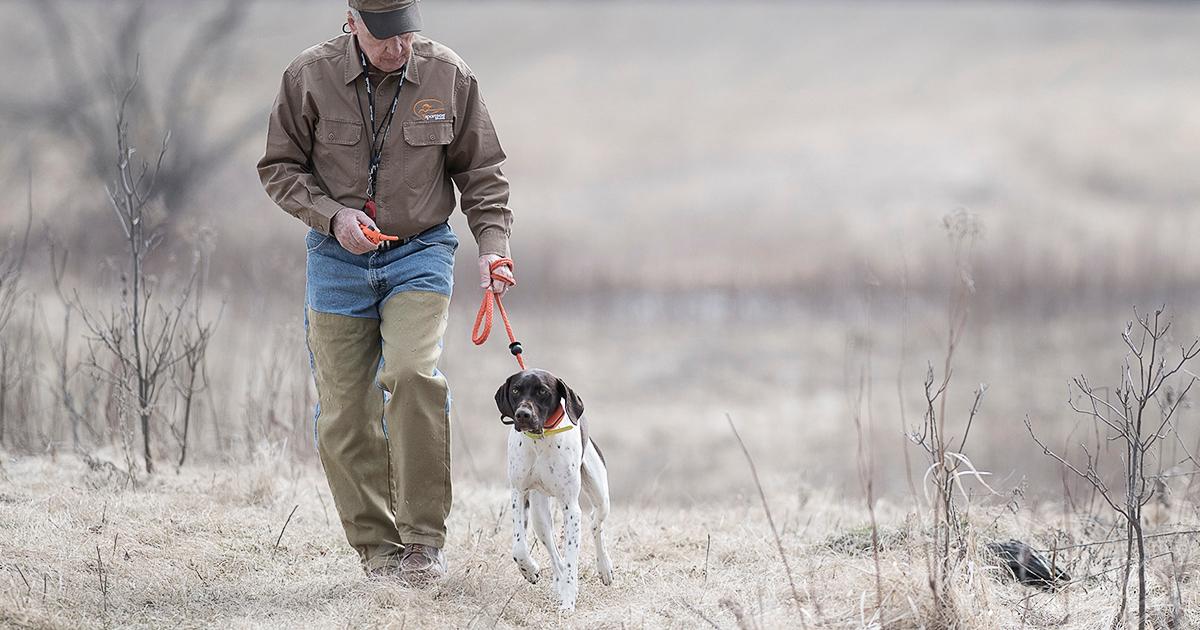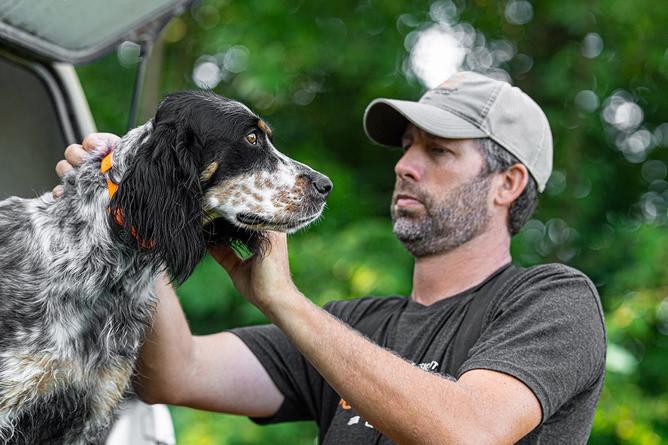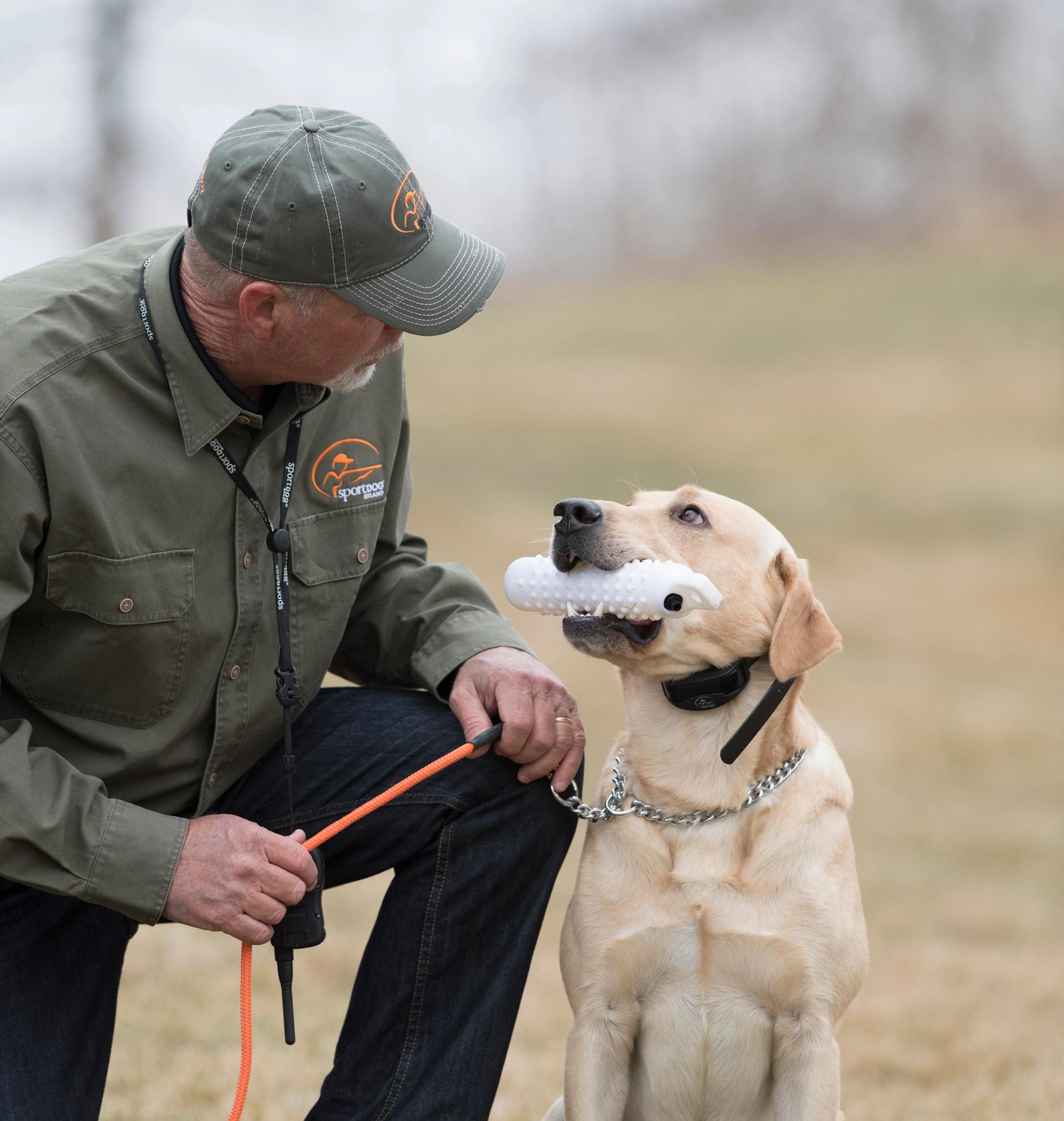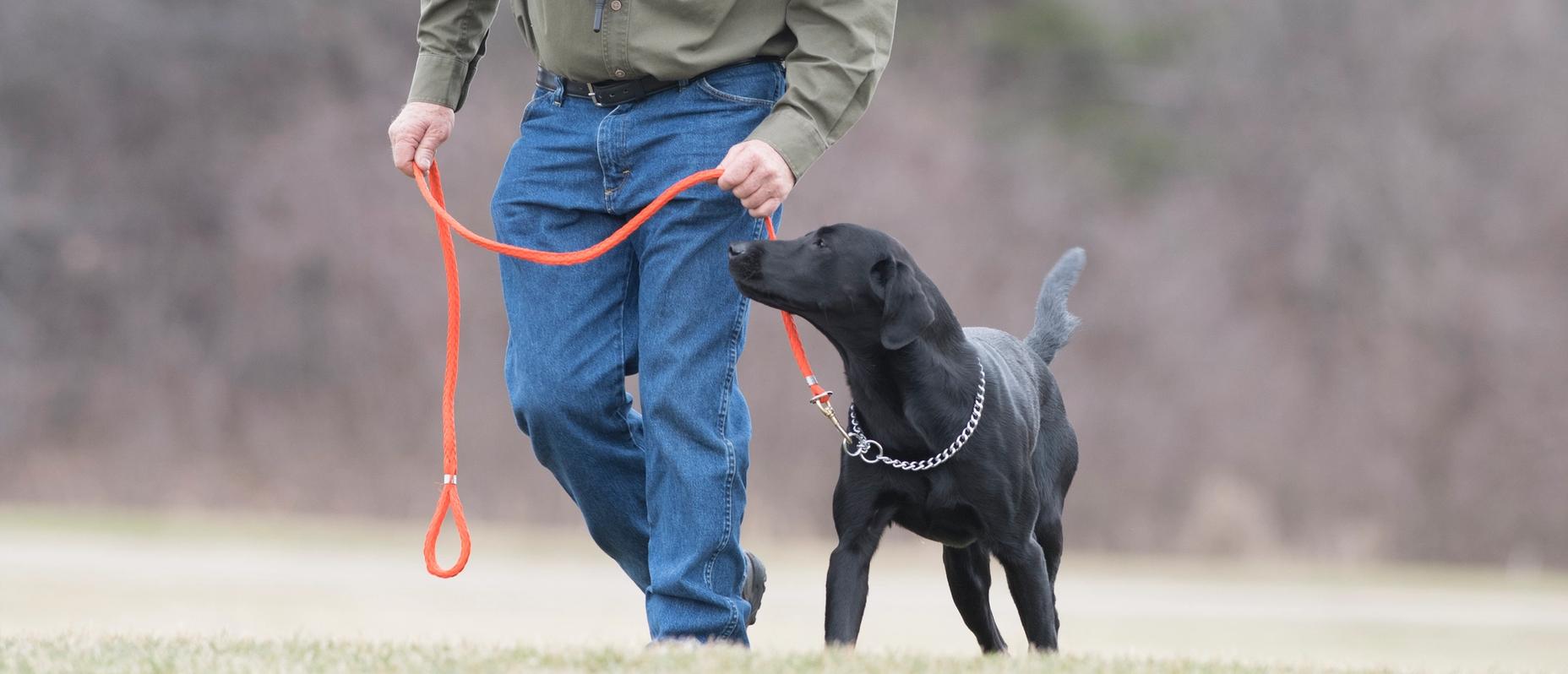
Watch for Displacement Behavior
Posted by The SportDOG StaffNo matter what breed of dog you’re training, at some point the dog will try any number of tricks to avoid giving up its alpha position. Yawning, scratching, sniffing, head shaking and licking are all ways in which your dog will attempt to delay performing a command. Your dog may only try one or two of these tricks but most dogs will display at least three of these responses while training.
Be prepared to correct your dog if it should exhibit any displacement behavior. Avoid losing your temper by staying focused and having a plan when your dog tries one of these tricks. It will quickly recognize that you understand what it is saying and that you are prepared to meet the challenge.
Displacement behavior can be very subtle and is often overlooked by trainers. If allowed to continue, displacement behavior will soon lead to defiance, and that may not be quite so easy to correct. Bolting, or running away, needs to be addressed quickly. Keep a leash on your dog if it shows any signs of bolting so you can control its actions and prevent the flight mechanism from being rewarded. If your dog develops a bolting mentality, it is feeling far too much pressure and you need to re-evaluate your training program or your dog. It would be extremely surprising if the problem is with your dog.
Bolting usually arises from a trainer attempting to go too far, too fast, too soon. Slow down the training process when a bolt occurs and look at what may have caused your dog to run off. If you can identify the cause, eliminate it from your training program.
Biting is the next form of defiance and is the most worrisome. While there are a few dogs that are truly mean and look to bite people, this is extremely rare. A dog will not bite unless it feels like there's nowhere to turn except by making you go away. If your dog tries to bite you, get some help in the form of another opinion about your dog and your training program from a professional.
Quitting or lying down is the other major out-mechanism. The dog will quit trying to perform in an effort to get out of its job for three reasons. First, it has little drive or desire to please. This is usually the result of poor breeding or an absence of socialization during the first six months of its life. A dog may appear to quit in an effort to con you out of performing. It may lie on its side and throw the rear leg up in the air, assuming a submissive posture. Pay close attention to your dog’s eyes if it pulls this stunt. If it is looking directly at you, your dog is playing the role of the con artist.
The final reason a dog would quit is due to too much pressure from the trainer. This dog has given up and is saying that it would rather lie down and take a beating than work in an effort to please its trainer. If your dog chooses to lie down during the training process, you need to pay close attention to yourself and how your dog is being trained.
Always check your local and state regulations related to dog training and the use of game birds on private and public property.
Related Articles

Understand This Before you Train
by The SportDOG Staff
Every animal on the planet has an alpha or beta relationship with every other animal. We usually think of “beta” as submissive and beaten down, but in wild packs or herds, that is not the case. The beta dog in a pack of wild dogs is still quite happy and...

Training Commands: Talk Less, Reinforce More
by The SportDOG Staff
No matter how good our intentions, we hunters and dog trainers as a whole commit one error that sets our training progress back and creates additional problems. We commit this error over and over again, and it’s vitally important to recognize it and fix it. What am I talking about?...

E-Collars: Finding the Right One and Using it Correctly
by Lynne Frady
I’m not sure if any other training tool stirs a debate like e-collars. Some people love them and others think they were made by the devil himself. This leaves many novices confused about what they’re getting into with an e-collar. After years of training and experience, I can officially tell...

E-Collar Training 101: The Trusted Method Used by SportDOG® Experts
by The SportDOG Staff
Discover the most recommended way to introduce your dog to an e-collar with guidance from SportDOG®. Learn the proven “Pressure On, Pressure Off” method trusted by pro trainers to build reliable off-leash obedience, clear communication, and long-term success.
